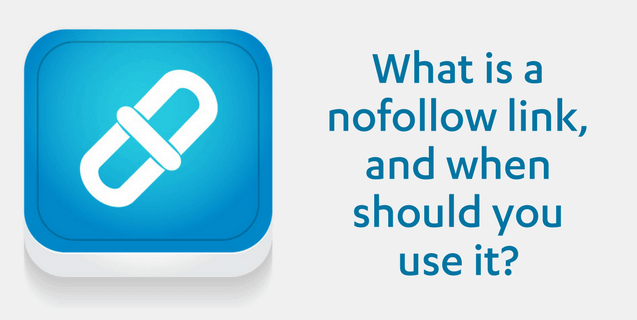
What is a Nofollow Link, and When Should I Use it?
The world of SEO is constantly evolving, with new terminology and features coming and going as quickly as the next Google update. Most people with exposure to SEO will have heard about nofollow links, but to the uninitiated, it’s another one of those obscure terms you may have heard but never understood.
We’re going to clear things up by defining nofollow links and explaining when they should be used. But first, a bit of context.
Dofollow Links
To really understand what a nofollow link is, you’ll need to understand how a regular link (“dofollow link”) works in SEO. When a page links to an external site, it sends a signal to search engines that the page directing the link finds something of value on the linked page. With some exceptions, the linked page gets a boost in their SEO in the form of page authority.
Generally, the more links you have directing to your website, the better your search engine rankings. But not all links are equal. The more popular and reputable the website is, the more authority the pages they link to will receive.
What is a Nofollow Link?
Now that we understand how regular links work, we can understand how nofollow links work. A nofollow link is a way for the creator of the web page to tell search engines not to follow the links on their page. Simply put, the webmaster tells the search engine not to give any authority to the linked website.
Why would I use it?
Why would you not want a search engine to give a boost to the page you’re linking? The answer is certainly not spite. The nofollow link was created primarily to deal with spam, but it also has some secondary uses.
When some people in the SEO world found out about the value of links to their website, a new method of boosting content was born. Spammers everywhere assaulted blogs, forums, and comment sections, posting links to their website to increase their inbound links. By allowing webmasters to “nofollow” their links, search engines thwarted spammers because their websites received no authority for nofollow links.
When You Should Use A Nofollow Link
Content You Don’t Control
One of the great functions of the nofollow link is disavowing yourself from content you can’t control – think forums and comment sections. In the past, all links posted in forums and comment sections were dofollow links, and out of the webmaster’s control. Now, by setting up your comment section so that all links are automatically nofollow, you can prevent untrusted commenters from successfully spamming.
Using nofollow helps you avoid passing on authority to unsavory sites on the internet. Even better, just seeing that your comment section has nofollow will prevent most spammers from even trying. You can reward your loyal and trusted commenters by either automatically or manually removing nofollows from their links.
Paid Links
You shouldn’t pay for page authority. Search engines don’t want paid links to unfairly influence page results. This practice falls within a gray area, but you could be penalized by search engines. For example, Google’s guidelines say, “Search engine guidelines require machine-readable disclosure of paid links in the same way that consumers online and offline appreciate disclosure of paid relationships.”
Content You Don’t Want Search Engines To Rank or Visit
Seems obvious, but sometimes there is simply content you don’t want search engines to waste their time with. Search engines can’t register for a webpage or log in, so there is no use in having them follow a link to gated content.
A little less obvious is that there is content you simply don’t want to rank. Think of the content you give to your clients once you’ve converted them. For example, a thank you page that customers see after a purchase doesn’t need to get page authority in search engines. By using a nofollow link, you can prevent that page from being indexed by search engines.
A Final Note
The usage of nofollow links is a contentious one within the SEO world – the SEO team here at Volume Nine even has varied opinions on when to use nofollow links. The suggestions above are general guidelines that we use with our clients. We recommend looking at your usage of nofollow links on a case-by-case basis or ask an SEO consultant.
As always, if you need help navigating the world of nofollow links, the SEO team at Volume Nine is here for you. Contact us today!







